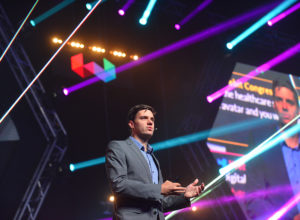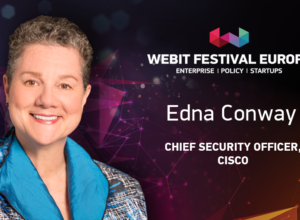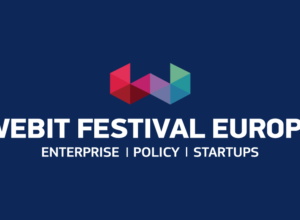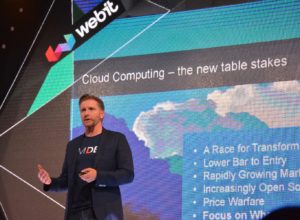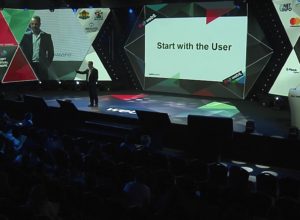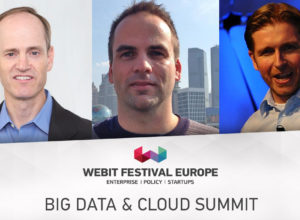Tag: cloud
Will the blockchain industry change digital advertising?
The crypto market exploded over the last three years. A lot of industries started looking at blockchain as a technology, as to whether it can solve some of their biggest challenges.
Let's look at blockchain:
Blockchain as a technology is still at its infancy. We're still at the hype cycle and blockchain is sitting right next to autonomous vehicles which I don't see happening in the next two or three years and Event-triggered marketing. So as a technology, blockchain might grow into something big like the internet or even bigger, but it might also fade away into some narrow use cases.How can Blockchain improve the Digital Media and advertising landscape?
There are some use cases which are rather obvious: * Fraud detection and prevention * User Identity * Buying and selling inventory, etcCentralization vs. Decentralization
Trust a third party or to use a decentralized approach?Decentralization PROs
* Durability, reliability and longevity - Due to the decentralized networks, blockchain does not have a central point of failure and is better able to withstand malicious attacks. * Process integrity - Users can trust that transactions will be executed exactly as the protocol commands removing the need for a trusted third party. * High quality data - Blockchain data is complete, consistent, timely, accurate and widely available. * Transparency and immutability - Changes to public blockchain are publicly viewable by all parties creating transparency. All transactions are immutable, which means they cannot be altered or deleted.Decentralization CONs
* Trusted 3rd parties - it's not Central vs Decentralized. The advertising ecosystem is based on trusted third parties. These 3rd parties are innovation drivers. * It's too slow - Digital advertising is real-time. RTB standard requires service response in 100ms.There are several examples which already use blockchain in addressing some of digital advertising's biggest challenges.
adChain tries to create a token curated registry of publishers in order to verify and simplify the buying. And papyrus is a decentralized programmatic value management platform aimed to radically improve programmatic advertising stack. All of these solutions are in the making, they are not really ready but they are evolving pretty fast. Several years ago we were talking about mobile apps, then AI, now blockchain. The hype cycles of few years ago were longer and we used to have more time to adapt to them. But now they are becoming shorter and they’re starting to overlap. It wasn’t long long ago that we were talking about programmatic buying. Now it is programmatic buying on a decentralized exchange powered by blockchain.Missed the 2018 edition of Webit.Festival Europe? Don’t miss the 2019! Get your super early bird 2in1 tickets – 2 for the price of 1 here!
Chief Security Officer of Cisco – Edna Conway joins Webit this...
Here you can see a full list of the confirmed speakers at Webit.Festival Europe 2018, while here you can get all the information you need about the tickets for the event. Managing supply chain risk requires a comprehensive approach over the complete product or process life cycle, and Cisco is looking at the potential impact of new technologies such as blockchain and the “internet of things” as part of its solution.Digitization is driving each of us across all industries to make dramatic changes to how we approach customers, products, services, and the always-on, real-time information rich marketplace. This digital economy is gender agnostic. And, it is highly dependent on a connected global ecosystem. The message is clear—no one person, enterprise, industry, government or region can stand alone any longer.
Prior to Cisco, Conway was a partner in an international private legal practice and served as Assistant Attorney General for the State of New Hampshire.“We define the value chain as the end-to-end life cycle for any solution. In order to build trust, you need to understand the risks you are taking, and those risks need to be measured in the language of business.” says Conway
She is recognized domestically (US Presidential Commissions) and globally (NATO) as the developer of architectures delivering value chain security, sustainability and resiliency. Her insight is featured in a range of publications, analyst reports, and case studies, including Forbes, Fortune, Bloomberg, CIO Magazine and the Wall Street Journal. Conway is constantly using her expertise to leverage new tools in an ever-expanding digital arsenal. She has turned her attention to the security potential in blockchain. With the ability to track data through networks, blockchain becomes a highly effective digital ledger, or “passport for the data” according to her.My path to security was built on a foundation of protecting intellectual property; enhanced by a legal background and rich engineering and operational leadership roles afforded to me by Cisco. Each of these opportunities, including leaving a successful legal practice to join Cisco, required faith. Faith in my own ability to learn an entirely new discipline and trust that my colleagues would support me in that effort.
Recognition of her industry leadership includes membership in the Fortune Most Powerful Women community, and awards including: a Fed 100 Award, Stevie “Maverick of the Year Award,” a Connected World Magazine “Machine to Machine and IOT Trailblazer” Award, an SC Media Reboot Leadership Award, a New Hampshire Tech Professional of the Year 2018 Award, and CSO of the Year Award at RSA.“A chain of custody of your data and your actions across the full spectrum of a life cycle adds a degree of integrity we’ve never had the ability to do easily before”
Only today! 50% off from all tickets for Webit.Festival Europe 2018!
Register here and get your ticket
to join Prime Ministers, EU Commissioners and EU top policy makers, global innovators and enterprise executives, Ministers, Mayors, investors, media and Europe's top 200 startups and scaleups - all at Webit.Festival Europe with a special discount of 50% on all tickets with code: GDPR 6000 global experts (67% senior attendance) join Webit from 110 countries.Check who is speaking
Over 200 exhibitors and sponsors join Webit this year. A warm welcome to the group of new partners who join Webit including Microsoft, SAP, Samsung, Fox, Novartis, VISA, UBB, part of KBC Group, Superhosting . BG, VMware, FOX, Turner, Novartis, Bayer, Amgen, Generali to name a few. Special thanks to our General partner MasterCard and our strategic media partners Nova TV and NetInfo.Happy to help.
Should you want to join as exhibitor and sponsor - please contact us.We’ve updated our Privacy Statement
There is so much buzz around the new EU’s General Data Protection Regulation (GDPR)
At Webit we are firmly committed to privacy and data protection and we are happy to confirm that we, too, have taken all necessary steps to ensure [full] compliance with the GDPR. All necessary controls and features are in place so you can continue to use our service with confidence.
Feel free to check out our updated Privacy Statement to understand more about the types of information we may collect, how we use it, and why we request it.
Webit is all about community and empowering your success through connecting you with potential partners, investors and clients from all around the world.
SPECIAL 50% DISCOUNT
We also want to take this opportunity to let you know that Webit is welcoming this new era of data privacy by providing all our subscribers a special "DATA present” 50% off from all tickets for Webit.Fetsival Europe 2018 starting this Friday, 25 May till 29 May.
We release a total of 250 tickets for this special "DATA Present".
Register here
and join Webit.Festival Europe with a special discount of 50% on all tickets with code: GDPR
We collect personal data when you register with us via our website or when participating in our events, exchange personal contacts, etc. We will use your personal information to provide and further improve our services, to ensure the security of our website and information systems, as well as for fraud prevention. We do not share it with other companies or organizations. We send to our customers, partners, participants in our events, subscribers and community our information bulletin about the upcoming events, promotions and free tickets, latest developments, new technologies, meetups, parties, products and services, etc.
Investments in FinTech
FinTech is data
Money is data too, they represent the value. As we’ve already entered a “data age”, there’s much more consciousness about the data. From online payments through digital wallets and asset management, this is a pretty vast area of settling a company and acquiring a market segment of. As for FinTech where the area has been controlled by the big banks and large organizations until recently, now we see more and more startups creating new products and truly having an impact. Even though it’s getting more crowded in the last few years, this market still provides probably the biggest opportunity that’s out there in terms of a market.One of the advantages of investing in FinTech is that one always knows where the money come from
By default, FinTech companies are dealing with money so that makes an investor’s job easier in order to track the flows. This area is fairly straightforward when it comes to a particular business model and the way the business works. The market for financial services is more than enough large so nobody has to ask questions about the size of the market or how companies in the sector will make money. The question is whether they can execute and succeed. The buzz in FInTech naturally raises the question of security: security solutions and their integration in FinTech products and services. Companies are putting more and more information on the cloud so security is a sensitive issue in all areas and needs to be paid proper attention to. Companies operating in this domain need to deal with regulations, licences and still find a way to keep their customers data secure.If your company doesn’t like change, it will eventually become irrelevant
“It is important to realize this. If you look at where you are and where you want to be make sure to let go of the past to move on to the future”, the expert said.He reminded that Cloud Computing is actually not a new thing, but we can all give credit to Amazon for making this the number one priority for many companies today. What is important to understand about Cloud Computing is that it is now a must have thing. The Cloud Computing era brought forward a process, called Digital Transformation. A lot of established companies now go through the rapid attempt to digitalize themselves and there is a real race to transform. The other thing that Cloud Computing brought is the lower bar for entry in the space of technology. If we go back 10 or 15 years ago, it required a much bigger minimal investment to try to launch a service. In the ever evolving markets there is a price war and ultimate race to the bottom. As soon as a company comes with a low price, everyone try to chase after. The markets are growing faster than we can actually imagine thanks to trends, such as IoE and AI.
“What that means for all the cloud vendors is that they have to focus on what makes them different. That is the key thing to succeed. It can not all go down to zero in terms of revenue from our services so we have to differentiate”, said Jacobi.The important thing when we look at the things popping out on the market is that they go through some form of evaluation of the market. In the case of connected devices this process is called IoT Chasm and it follows several steps. A new trend comes out and everybody is super excited. We start with the honeymoon period which is like coming to a new place and saying that you are going to stay there forever. Then you start noticing some functions that doesn’t suit you well. But after a while you realize that you are committed to the technology. When a user is already committed, he starts looking not only for convenience, but for things like security of the product. Many IoE companies think of the security as of something that is going to come later. But we are on a stage of development in which someone can hack a car and steer it off the road Once the commitment is a fact, we get into those deeper issues, and as soon as we go through them we get into the major adoption curve of a new technology. [caption id="attachment_5060" align="aligncenter" width="640"]
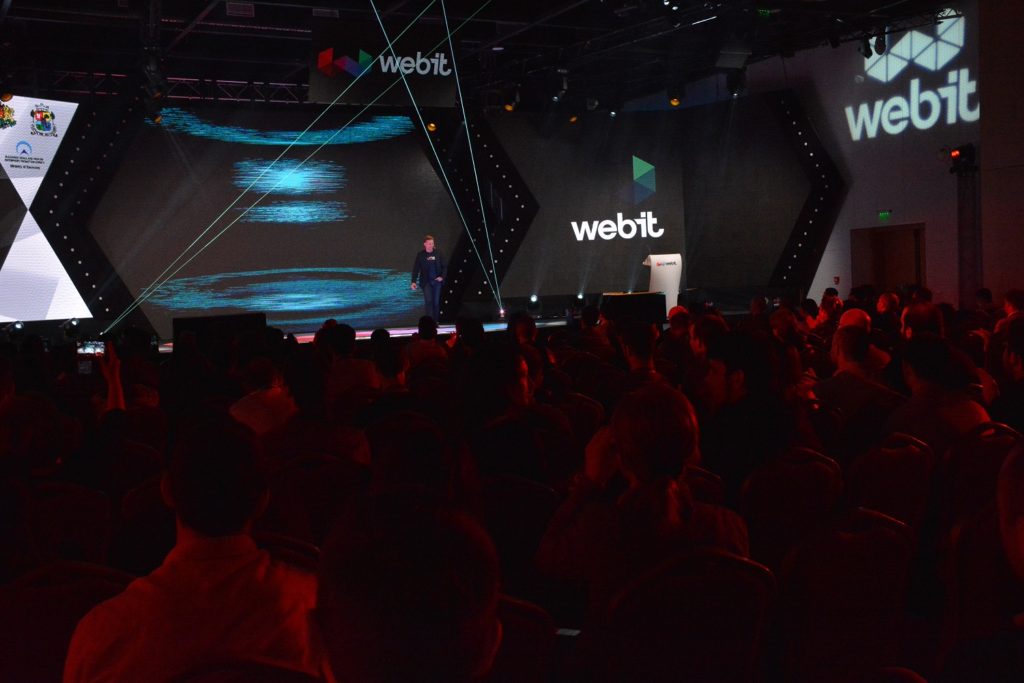 The VP for Cloud and Mobile Technology Strategy at IBM Jonas Jacobi.[/caption]
Connected cars present a giant market opportunity. But now there are even 3D printed self-driving minivans that are with built in AI. We can talk to the bus and communicate with it. We can even ask for a good restaurant and it will take us there. Now technology is not disrupting just one business, but several at the same time.
If you can 3D print a car then you disrupt manufacturing, traffic planning, optimizing traffic fall and making it greener. This is where we are heading. Soon we will just be able to download a blueprint and go print our own personalized car in the shop.
The other giant trend in technology is the rise of Artificial Intelligence. And while many people perceive the adoption of such technology as a start of the battle between the man and machine, the reality is that AI will augment humanity and human intelligence, not replace us.
The VP for Cloud and Mobile Technology Strategy at IBM Jonas Jacobi.[/caption]
Connected cars present a giant market opportunity. But now there are even 3D printed self-driving minivans that are with built in AI. We can talk to the bus and communicate with it. We can even ask for a good restaurant and it will take us there. Now technology is not disrupting just one business, but several at the same time.
If you can 3D print a car then you disrupt manufacturing, traffic planning, optimizing traffic fall and making it greener. This is where we are heading. Soon we will just be able to download a blueprint and go print our own personalized car in the shop.
The other giant trend in technology is the rise of Artificial Intelligence. And while many people perceive the adoption of such technology as a start of the battle between the man and machine, the reality is that AI will augment humanity and human intelligence, not replace us.
“At IBM we are working a lot with AI on healthcare. AI can help doctors reach a decision faster, get access to more information faster and anything else in the market. In this case it is an opportunity to improve and safe life of many”, Jacobi said.He thinks that cognitive systems do not think for us, but help us do research and make better decisions. The IBM expert said that no matter how hard we resist and try to push back change, it will inevitably come to us, so we should instead endorse it and bring it in. Because the sooner we adopt new technology, ideas and business models, the faster we can evolve as companies and individuals. You may watch Jonas Jacobi’s full lecture here: If you want to keep up with the latest trend in the world of digital economy and technology, then Webit.Festival is the right place for you. Visit our website and book 2 of our Super Earlybird tickets for Webit.Festival Europe 2018 for just €100. Feel the Webit vibe with some of the best photos from this year’s event! [easingslider id="4954"]
The invisible intelligent infrastructure that will shape our future
“My simple answer to them is that no digital transformation has ever started in the data center. No digital transformation ever started with a computer scientist. Digital transformation starts with the user and if there is one thing that enterprises need to learn and understand in the modern age is that they have never ever thought about their users, they have only ever thought about the business”, he added.The expert thinks that the key to successful digital transformation is understanding and focusing on who you actually sell to and why is he buying your product. In the world of B2B relationships the main goal behind buying an enterprise product is to solve your customers problems, so if you are a company like VMware you better think about the best ways to help your customers sell more to their customers. [caption id="attachment_4985" align="aligncenter" width="640"]
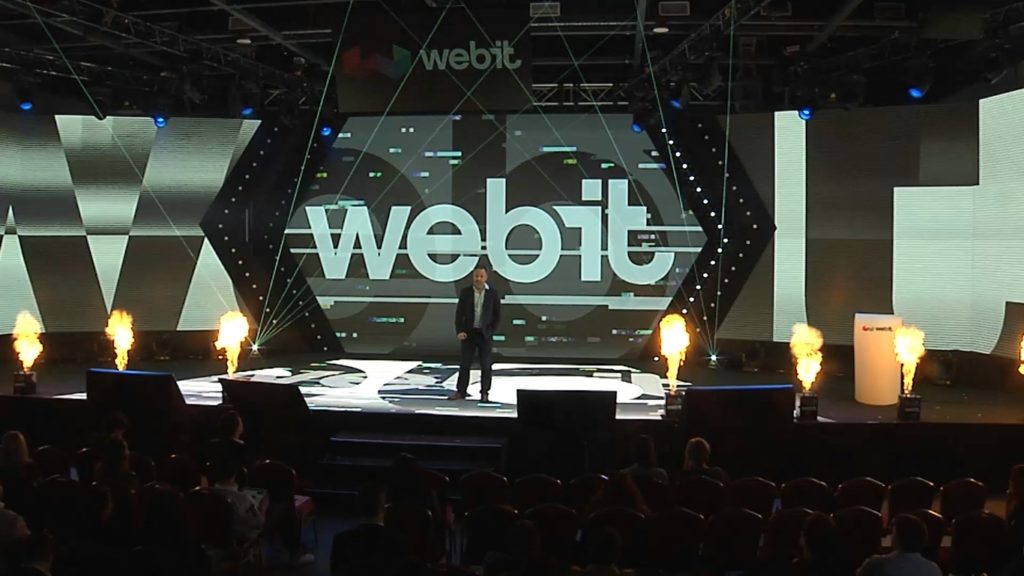 VMware’s Vice President and Chief Technology Officer for EMEA Joe Baguley.[/caption]
The digital transformation we see today is driven by 3 main factors - business agility and innovation, exceptional mobile experiences and protection of brand and customer trust. The priorities are to modernize data centers, integrate public clouds, empower digital workspaces and transform security.
Almost all projects that we can see in IT organizations today fell into one of these priorities. And all these priorities are going through a cycle. You analyze that there is a problem. Then you decide that the way to solve it is an app. Over time that app generates data about its users and their habits. You hopefully analyze that data to take advantage of it and update the application. That generates more data and the cycle goes again, while you are getting better and better app.
Usually this process takes about 12 to 18 months for most of the companies. But if they want to be like the leaders in the digital economy Google, Amazon, etc., they need to do this multiple times a day.
VMware’s Vice President and Chief Technology Officer for EMEA Joe Baguley.[/caption]
The digital transformation we see today is driven by 3 main factors - business agility and innovation, exceptional mobile experiences and protection of brand and customer trust. The priorities are to modernize data centers, integrate public clouds, empower digital workspaces and transform security.
Almost all projects that we can see in IT organizations today fell into one of these priorities. And all these priorities are going through a cycle. You analyze that there is a problem. Then you decide that the way to solve it is an app. Over time that app generates data about its users and their habits. You hopefully analyze that data to take advantage of it and update the application. That generates more data and the cycle goes again, while you are getting better and better app.
Usually this process takes about 12 to 18 months for most of the companies. But if they want to be like the leaders in the digital economy Google, Amazon, etc., they need to do this multiple times a day.
“Most leading edge companies push different code to their production systems multiple times a day, minute or hour and not once in every 3 to 5 years. The reason you are behind is that you are not going around this loop quick enough. You do it faster, you win. Whether that is with your startup or your massive enterprise organization”, Baguley said.According to him, there are three things that stops companies from going around this loop - people, processes and technology. The aim of VMware is to help them with the last two of the factors with the development of invisible intelligent infrastructure that spreads data, entire applications and storage across multiple machines and multiple physical locations. The expert is sure that the rise of AI will bring a real revolution in the world of data management. The reason is that one of the large customers of his company operates over 350 000 virtual machines in a single cloud. If each one of them is creating 10 events per second that is 3.5 million events that need to be processed in that cloud. No human being in the world can understand and respond to 3.5 million machines to give you the idea of the health of that application and that infrastructure. The only way to make the machines this big to support the amazing stuff we hear about all day is to make the computer think about itself.
“Look around and think how can you help your organization and customers to get around this cycle quicker. Think about what is in the way between you and doing this and what can you do to get stuff out of the way. We are making sure technology is not in the way. We are making sure technology is so intelligent that is invisible intelligent infrastructure. It’s just there, it works, it thinks about itself”, Baguley said.You may watch his full lecture here: If you want to keep up with the latest trend in the world of digital economy and technology, then Webit.Festival is the right place for you. Visit our website and book 2 of our Super Earlybird tickets for Webit.Festival Europe 2018 for just €100. Feel the Webit vibe with some of the best photos from this year’s event! [easingslider id="4954"]
